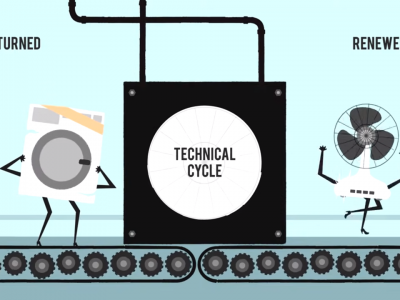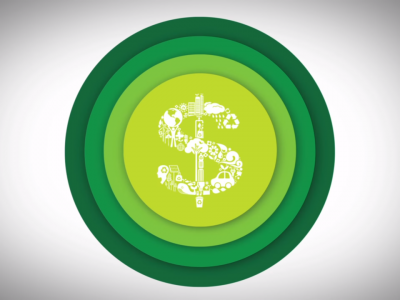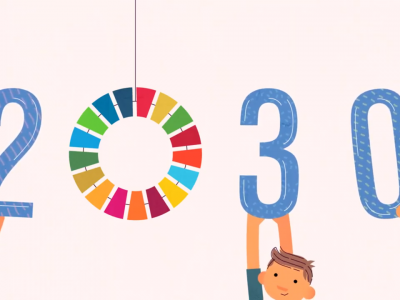Why be a sustainable business?
Sustainability is about using resources today in a way that maintains their supplies for the future. This does not mean living without personal luxury or compromising the success of the business, but rather being aware of our consumption of resources, reducing unnecessary waste and providing certainty for future generations. Rather than harming our environment and depleting our natural resources, we need to support long-term ecological balance. Our planet and its ecological system are in bad shape. Your business has a key role to play in getting things right: your customers, government, and the community are now expecting and demanding this. Sustainability is all about certainty - it's good business sense.
Independent customer surveys and market research prove that large majorities believe that sustainable practice is now a critical behavior requirement. Everyone who works in and is associated with your business should practice sustainability.
Global Concerns
- What market research and industry reporting is highlighting the need for Global Sustainable Action?There is an amazing amount of credible search available through independent researchers. A summary of the latest findings are here for reference (links to creators and owners of the data):
United Nations: The Future is now - Science for achieving Sustainable Development.
Nielsen: Identifying Sustainability Opportunities with Consumers.
Nielsen: Increasing Brand Trust through Sustainability.
Nielsen: Sustainability Continues to Drive Change.
Nielsen: Finding success through Sustainability.
Nielsen: The Influential Customer.
Forbes: Why Sustainable Branding Matters.
Forbes: Trends Shaping Food Products.
Edie: 60 percent of plastic packagers have no Environmental Policies.
Odgers: Trending Ethical Consumption. - What are the Global Environmental Concerns driving the need for change?The media is now reporting on environmental concerns on a regular basis. Your central and local governments are also now implementing policies and guides on what is happening relevant to your business, in your country and in the world. Below are some interesting facts with sources supplied, you can of course also google and discover for yourself.
Science Magazine: In 2018 the amount of CO2 in the Earth’s atmosphere reached the highest level in 800,000 years.
CO2 Earth: 2016 was the warmest year since 1909, the 5 warmest years on record have been in the last 20 years.
WXShift: Last 100 years (to 2018) the temperature of Earth increased by 1.7 oC and the sea by 0.9 oC.
The Economist: Sea temp increases resulted in level increases of 22 cms, forecasted to be further 65 cms by 2100.
Tree Hugger: 50% of Earth’s food supply comes from just Wheat, Rice and Maize (65% for livestock).
Tree Hugger: 90% of global livestock production comes from just 15 species of mammals and birds.
World Resources Institute: Global tree cover loss reached a record 73.4 million acres in 2016, 50% higher than 2015.
Tree Hugger: 20% of the Amazon rainforest has disappeared in just 50 years.
Tree Hugger: 50% of all shallow water corals have been lost in the last 30 years.
Tree Hugger: 75% of the major marine fish stocks are being fished at or beyond their biological limits.
Tree Hugger: All mammals, birds, reptiles, amphibians and fish have experienced a decline of 60% since 1970.
World Resources Institute: We lost a football pitch worth of the Earth’s natural forests every second in 2019.
World Resources Institute: Plastic production was 311 M Tonnes in 2014, 20 times the amount produced 50 years earlier.
CNN Edition: Great Pacific Garbage Patch is about 1.6 M km2 in size. This is about 16 x bigger than estimated.
WorldMeter: By 2037 it estimated the world’s population will reach 9Billion, that is a 3 x increase since 1960.
How future-proof is your business?
Climate change and global warming are urging governments, people and businesses to commit to sustainable practices. Created by the UN, the 17 Sustainable Development Goals are the blueprint to achieve a better and more sustainable future for all. The Goals address the global challenges we face, including those related to poverty, inequality, climate, environmental degradation, prosperity, and peace and justice. We provide businesses with the opportunity to align with these Goals, to become sustainable and to secure a more certain future through our Certo Online Business Sustainability Program. We focus on your people, processes and products across your value chain. Sustainable businesses are all about certainty, how certain are you that your business is future-proof? Here are 5 reasons why we think your business should become a Sustainable Business:
- Sustainability is a key part of decision making.
Sustainability is key for businesses making strategic and operational decisions, and for consumers deciding which products and services to select. Consumers are now considering a company’s impact on the environment before purchasing any goods or services and, those that do, are more likely to show loyalty to a company that has sustainable habits. Your competitors are likely to be operating sustainably and winning the approval of your customers – new and existing. - Sustainability secures a brighter future for all.
Sustainable businesses demonstrate to employees and customers that they are committed beyond the work environment, they are aligned go our ecosystem and reducing environmental harm. Their long-term plans safeguard their future and create a legacy from which other generations can live by. Sustainability provides reassurance that a positive business brand image will remain for years to come. - The brightest recruits join sustainable businesses.
Social networks and social marketing tactics make it easier for information to be relayed. A lot of this has been connected with sustainability concerns and it is becoming commonplace, particularly amongst the millennial generation (born after 2000). These fresh job seekers want to be part of the solutions and want to make a difference to the environment and the communities around them. By aligning with their sustainability values, you have a better chance of recruiting the brightest young people to your team. - Business operating costs are reduced using sustainable practices.
By focussing on sustainability within the business, companies are reaping cost savings and creating healthier workplaces. Energy efficient appliances and practices, and effective water and waste management, are all having a significant impact on reduced operating costs. - Sustainability drives innovation and future growth.
Sustainability is all about doing things smarter, better, for longer, without compromising our ecosystem. It motivates companies to move beyond their comfort zones and explore new territories, seeking new materials, technologies and processes.





